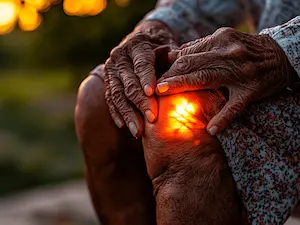Interest in Stem Cell Therapy in the UK is definitely on the rise. But:
How much does it cost in the UK?
Stem cell therapy in the UK costs between £3,500 and £25,000, depending on the treatment type.
Some more complex treatments can reach closer to £100,000! The NHS does cover certain treatments, but most treatments are private. We’ll go into all the detail below! We’ve gathered our data in a few different ways & we’re always updating it
Our team’s here to help you understand regulations & costs in the UK, talk you through results from past patients & which clinics you can trust.
Alt Treatment Vetting Guarantee
All prices are updated as of December 2025. Our pricing data is attained from real clinics in the UK and verified patient treatment data. Legal Data is obtained directly from official government sources such as MHRA (Medicinal Products) and HTA (Human Tissue) guidelines and is reviewed monthly.
Are Stem Cells Legal in the UK?
Yes, SOME stem cell treatments are legal in the UK, but they are tightly regulated. And yes, you can get orthopedic & cosmetic Stem Cell Treatments in the UK.
The MHRA and HTA keep things in check, making sure treatments are safe.
What Stem Cell Treatments are allowed in the UK?
HSCT treatments for certain conditions like MS/blood disorders, autologous treatments for orthopedic & cosmetic purposes are allowed in the UK. We break down what’s legal below:
What Stem Cell Treatments are NOT allowed in the UK?
Get an estimated treatment quote today
We know getting treatment quotes isn’t easy. Get a personalized, estimated quote for treatment in the UK OR any other country so you can compare options globally.
Get Free Cost Estimate
What Are the Average Stem Cell Therapy Costs in the UK?
The average costs of Stem Cell Therapy in the UK typically ranges from £3,500 to £25,000 depending on the condition and type of treatment (excluding HSCT treatments for blood disorders). Here’s a quick snapshot:
| Treatment Type | Price Range (£ GBP) | Conditions Treated | Available in the UK? |
| Stem Cell Injections (joints) | £3,500 to £10,000 | Arthritis, Sports Injuries | ✅ Allowed in private clinics |
| Spinal Stem Cell Therapy | Partially Available | Back Pain, Degenerative Disc Disease | Partially Available |
| HSCT (for Autoimmune Disease) | £30,000 + | Multiple Sclerosis | ✅ Available via NHS & Private Clinics |
| HSCT (for Blood Disorders) | £30,000+ | Blood Disorders, Leukemia, Lymphoma | ✅ Available via NHS & Private Clinics |
| Cosmetic & Anti-Aging Therapies | £3,500 – £8,000 | Stem Cell Facials, Hair Loss Treatments | Allowed, but only autologous cells |
People in the UK look abroad for Stem cell treatments if they’re looking specifically for cultured treatments of Stem Cells derived from umbilical cord tissue.
Now, if you’re tempted to pack your bags for cheaper stem cell therapy abroad, our guide on Average costs in different countries will be useful.
Not sure if you should get stem cell treatment? We’ll help you decide. We’ll walk you through real data on success rates for each condition, stem cell treatments that don’t work & how to avoid poor clinics.
2026 Knee Stem Cell treatment Cost UK
In the UK, knee stem cell injections typically cost between £3,500 and £10,000 per knee in private clinics. Some of our partnered clinics offer reduced rates for Alt Treatment users & we can walk you through vetted options.
Prices vary based on the clinic, the number of injections needed and whether or not the clinic will prescribe additional treatments to help your specific knee condition.
But remember, the UK only allows minimally manipulated autologous stem cell treatments.
This means:
- No cultured stem cells or higher doses
- No umbilical cord derived stem cells
Because of these regulations, the effectiveness and dosing options are different from countries like Japan, Korea, Colombia, and Mexico.
If you want to understand how stem cells work for knee arthritis, meniscus tears, ligament injuries and cartilage damage, see our full Knee Stem Cell Treatment Guide.
Top Stem Cell Therapy clinics in the United Kingdom
We don’t let any clinic just sign up or pay to be listed.
We speak to every clinic directly and review their medical team, the treatments they offer, how their stem cells are sourced and how they follow up with patients after treatment.

We also review licensing documents to confirm they meet the legal and medical standards of the country they operate in. For example, whether cells are processed in a GMP-certified facility or if they provide documentation on stem cell quality.

Clinics must also agree to let us collect and publish independent patient reviews. Both positive and negative.

Why Use Alt Treatment?
We don’t just list clinics, we help you choose the right one, get the best pricing and support you through the entire journey. For free.
Compare with Confidence: Get clinic matches based on your condition, location, and budget.
Ask the Right Questions: Know what to ask before committing
Save on Treatment: Unlock exclusive discounts on vetted clinics and follow-up care.
We’re With You After Treatment: We check in post-treatment and help resolve any issues.
Travel & Visa Help: Need to travel for care? We can help with logistics, documents, and local tips.
Found a Clinic Elsewhere? We’ll check their licensing and track record for you, free of charge.
No Strings Attached: Even if you choose a clinic we don’t partner with, we’re still here to help you make the best decision.
Top Stem Cell Therapy Clinics in the UK

Regenesis is a leading UK specialist in Stem Cell Therapy for musculoskeletal & sports injuries. Their team includes some of the UK’s leading orthopedic and pain medicine experts. They’ve got decades of experience in sports medicine and regenerative therapies.
View Full ProfileWhy are Stem Cells so expensive in the UK?
Stem Cell treatments actually aren’t more expensive in the UK than most other countries.
Because clinics in the UK aren’t offering cultured treatments or using cells derived from umbilical cord tissue, stem cell treatments are actually cheaper than what you’ll find abroad in a lot of cases.
But take into account it is a different treatment than you’ll be getting in countries like Japan, Thailand & Dubai etc.
Is Stem Cell Therapy Available on the NHS in 2025?
Yes, but only for Hematopoietic Stem Cell Transplants (HSCT) for serious blood disorders like leukemia, lymphoma and relapsing-remitting Multiple Sclerosis as of 2025.
This NHS release goes into the details on stem cell transplants for blood disorders.
But if you’re hoping to get stem cell therapy for arthritis, hair loss, or anti-aging, you’ll have to go private because the NHS doesn’t fund those treatments.
Who Qualifies for Stem Cell Treatments from the NHS?
NHS stem cell treatment is only offered when it’s proven to work and other treatments haven’t helped. To qualify, you’ll typically need:
- A diagnosis of a condition like leukemia, multiple myeloma or MS
- A referral from a specialist (not just a GP)
- To meet NHS medical criteria, stem cell therapy is usually a last resort
How Do You Get NHS Stem Cell Treatment?
- Talk to your doctor. If you have a condition that might qualify, your specialist will refer you to an NHS transplant center.
- Medical assessment. Doctors will check if the treatment is the right fit for you.
- Donor matching (if needed). If you need donor cells, the NHS will look for a match through the Anthony Nolan register or other donor banks.
Approval & scheduling. If you qualify, the NHS will cover the treatment.
What If The NHS says I’m Not Eligible?
If you don’t meet the NHS criteria, you can still get HSCT privately for blood disorders ONLY. But it’s expensive, ranging from £30,000 upwards.
Stem Cell Treatment in the UK Compared to the rest of the World
When it comes to Stem Cell Treatments in the UK, regulations are tight and these regulations ARE enforced. That does mean most clinics can’t offer high cell doses or umbilical cord derived treatments. But, clinics do have to follow higher standards.
If you’re considering treatment abroad, check out our Best Countries for Stem Cell Therapy guide for a breakdown of costs and options. We’ve done a simple break down below:
| Country | Cell Types | Cultured Cells | Treatments Allowed |
| UK | Autologous | No | Orthopaedic |
| Dubai | Umbilical Cord | Yes | Orthopaedic, Cosmetic |
| Japan | Autologous | Yes | Wide Variety |
| South Korea | Autologous | Yes | Wide Variety |
Not sure which country’s right for you?
Browse verified stem cell clinics in the UK, Japan, Colombia and more that we’ve already personally vetted.
Browse Verified Stem Cell ClinicsRisks of Stem Cell Therapy in the UK
Stem Cell Therapy is generally safe when reputable clinics perform it, but like any medical treatment, it does come with some potential risks:
- Infection: Though rare, there’s always a small risk of infection at the injection site.
- Immune Reactions: Since you’re only allowed to use your own cells in the UK, immune rejection isn’t something you should be worried about.
- Over-Promising Clinics: Be cautious of clinics that guarantee miracle cures or results that sound too good to be true. This is where we step in, connecting you to vetted & independently verified clinics! Reach out to us here if you’re thinking about getting Stem Cell treatment in the UK.
For a more detailed breakdown of possible side effects, check out our in-depth article on Stem Cell Therapy Side Effects.
Stem Cell Research Breakthroughs in the UK 2025
- In January 2025, the NHS just approved a groundbreaking treatment called Exa-cel. It uses a patient’s own stem cells to tackle sickle cell disease. Scientists edit these cells with CRISPR to fix the faulty gene before putting them back into the body, offering a potential cure. While it involves stem cells, it’s considered gene therapy rather than a typical stem cell treatment for regeneration. But it offers real hope to people with Sickle Cell disease, you can read more about it here
- Scientists at UCL Great Ormond Street are testing a new stem cell treatment for necrotising enterocolitis (NEC), a dangerous bowel disease in premature babies. Their research found that stem cells from amniotic fluid could help heal the gut and reduce inflammation.
It’s early days, but Principal Investigator, Dr Conor McCann (UCL Great Ormond Street Institute of Child Health) said:
“This study is a real breakthrough in our cell therapy work for Hirschsprung disease. It really shows the benefit of bringing the expertise of different groups together which will hopefully benefit children and adults living with Hirschsprung disease in the future.”
This article covers the full findings! - In October 2024, the University of Nottingham, along with the Universities of Glasgow and Strathclyde, received an £11 million grant from UKRI EPSRC to improve how mesenchymal stem cells (MSCs) are grown in labs. The goal is to allow scientists to mass-produce MSC stem cells. This could be a major breakthrough for stem cell therapy in the UK!. Clearly, the UK’s committed to expanding access to advanced stem cell treatments in the future. If you want to read more about this, here’s the article!
So there’s some exciting things happening in the UK relating to Stem Cells. More treatments could start to be approved in the next 5 years, especially as some scientists are pushing for looser regulations.
So, is it worth getting Stem Cell Therapy in the UK?
If you live in the UK & are looking for Stem Cell Treatments for orthopedic or cosmetic conditions, the right clinics here can help.
But, if you want Umbilical cord derived MSC treatments or a higher cell dosage, you’re going to have to look elsewhere.
If you’re looking into Stem Cell treatment in the UK, speak to our team for free. They’ll walk through regulations, costs & how to stay safe. Fill in the form below & your personal concierge will reach out in 24 hours.
Get Free Support From Alt Treatment
- Walk you through latest data & independent patient reviews
- Guidance on regulations across countries globally
- Connects you with vetted clinics who follow best practice
- Secure exclusive discounts on treatments
- Support throughout your journey. Think of us as your free, personal concierge!
Alt Treatment is a free, independent platform that helps you understand stem cell therapy & decide if it’s right for you.
We break down complex information into clear, honest guidance. When you’re ready, we can connect you with verified clinics that meet your needs, in the right location, and often with exclusive discounts.
There’s no charge to use our platform. No hidden fees. No pressure. Our main aim is to genuinely help you figure out if treatment is right & the best places to consider.
If you want to talk, fill out our form here & our personal concierge team will reach out.
A single Stem Cell injection for joint or cartilage repair typically costs £3,500–£10,000. It depends on the clinic and the treatment specifics.
Common side effects of getting Stem Cells are fever and local pain/swelling at the injection site. We go into all of the side effects in more detail in our Stem Cell Therapy Side Effects Article
There are at least 14 stem cell clinics in the UK, with most of them based in London, especially on the famous Harley Street. Some clinics, like Spire Hospital, offer stem cell treatments in multiple locations, so the real number could be a little higher
Stem Cell prices for Knee Treatments range from £2,600 to £11,400 per knee, depending on what country you’re visiting. To get a more accurate breakdown, check out our cost section on our Stem Cell Knee Article.
Or to see how much Stem Cell Therapy costs for other conditions, check out our Areas of Treatment section.
Most stem cell treatments work by releasing healing signals that reduce inflammation, regulate the immune system and stimulate the body’s own repair processes. To learn more, see our full guide on How Stem Cell Treatments Work
Fill in your details below
For a discounted offer for Stem Cell Therapy!









